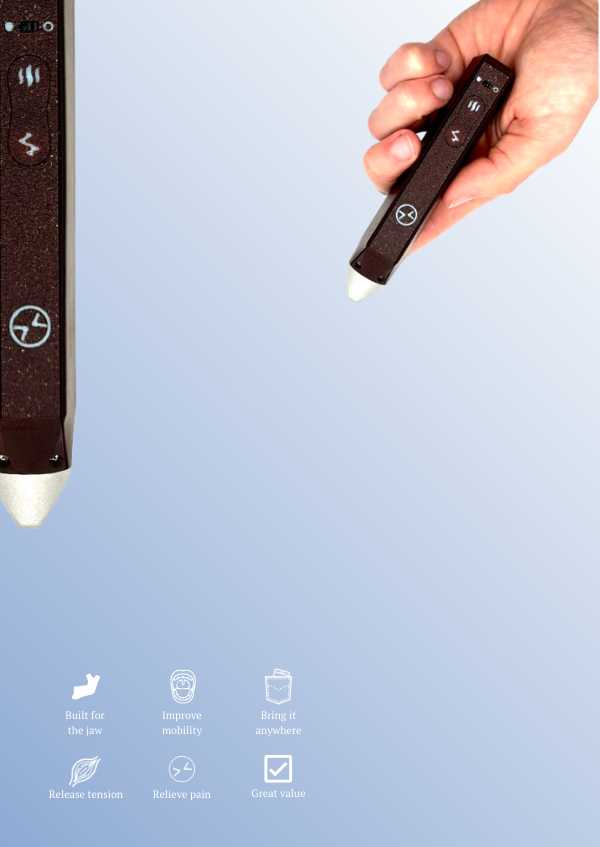Top 5 Things I Do For My Chronic Jaw Pain (TMJ)

Struggling with jaw pain? Me too. I've been dealing with TMJ Disorder for over 5 years - going from painless clicking in my right TMJ to closed lockjaw on my left (that hasn't unlocked in a year and a half).
It's been a journey through a lot of pain - but today, I actually manage to maintain an almost pain-free lifestyle (at least relative to how bad things used to be). Here are the top 5 things I do to make it happen. (By the way this isn't medical advice, just a collection of things I've picked up from extensive research and personal experience).
1. I’m not on a soft food diet.
I think this may be one of the most dangerous things you hear from a lot of doctors - because unless your joint is completely degenerated, the vast majority of people get much worse from a soft food diet.
I definitely avoid super chewy or tough foods like gum (obviously) or candy or a bad steak, but movement is the most important thing for joint health. Seriously. A soft food diet will only weaken the TMJ muscles and potentially make the root problem even worse. What you should do instead is go to a physical therapist to learn the exercises, mobilizations, and stretches that will help strengthen the joint and surrounding muscles to deal with whatever compensations you may be dealing with. We have a bunch of them on this website if you'd like to try now (scroll all the way down).
2. Immediately apply heated massage
After a lot of chewing or talking, I get really bad muscle pain and clicking. I try to get heat and massage on that immediately so I don’t lock up or get in my head about the pain. Sometimes all it takes is a couple minutes of light pressure on the joint, while other times it requires 15 minutes of full jaw muscle work. But I promise you it's worth it. If you try to just "suck it up" and go on with your day, the pain and tension will only get worse.
This is the reason I invented myTMJ Pen in the first place, so I could make the heated massaging process as quick and easy as possible since I'd do it so often.
3. Sleep is where things go wrong for most people
Every night I mouth tape to make sure I breathe through my nose. And I try to sleep on my side so the jaw doesn’t sit back and give me clicking again. But honestly this is super hard for me, I love sleeping on my back. I think having the right pillow setup is most important here, and that's something I'm still experimenting with. But seriously, if you can manage to not sleep on your back and breathe through your nose your life will be changed forever.
4. Constant posture checks.
I’ve basically gotten rid of my clicking by keeping my jaw just in front of the first click, slight gap between the teeth, and tongue on the roof of the mouth. 24/7.
You can read about why this is so important here.
It can be super hard to do this. And for the first bit you're going to feel like you're making things worse, because you'll always be adjusting and micro-moving your jaw. But at some point it will feel natural - and for me it has literally eliminated daytime clicking on my right side. Which is so frustrating, because clearly if I had learned these things BEFORE my left side locked up, I think I would've been able to stop my TMJ Disorder in its tracks.
Quick tip for the first couple days, you should set a timer for every 20 minutes. When it goes off, pause whatever you're doing and evaluate your posture. From the back, to the neck, to the jaw, to the tongue. Fix it. And continue.
5. Daily Jaw Exercise Routine
I may not post my daily jaw exercise routine anymore, but it doesn’t mean I stopped. In a month I’ve gotten a 5mm increase in range of motion, which is HUGE. I already kind of talked about how important movement is for your joint health. But I'll say it again. We made a bunch of tutorial videos for the main exercises and movements that exist for TMJ if you want to try now (scroll all the way down).



